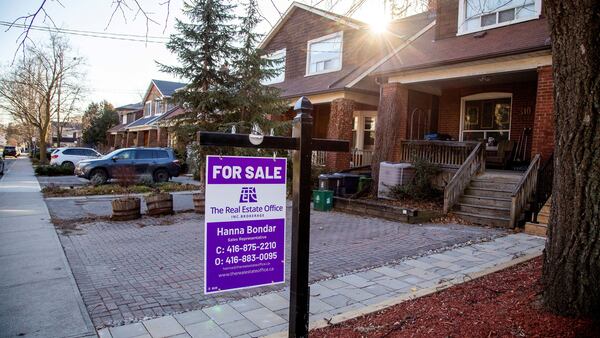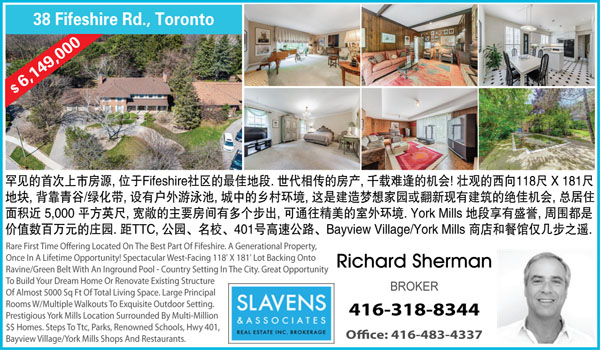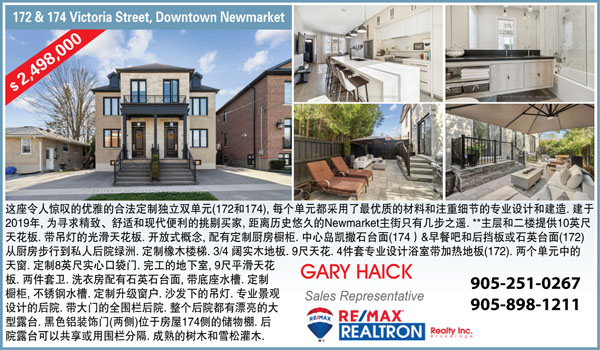拥有投资房产就是加国的超级富豪吗?(观点)

近期预算报告宣布的为应对加拿大的住房短缺加拿大将增加资本利得税,因而引发了关于私人财富问题的激烈争论。此次将超过25万加元的资本利得收入的纳入率从50%提高到66.7%的税务调整,引起了包括医生、企业主以及拥有度假屋或投资物业等受影响的各界人士的广泛争议。财政部长坚认税收增长只会影响到0.13%的人的最富有阶层,即加拿大的超级富豪们。尽管人们对向富人征税以支持中低收入者的“劫富济贫”之手段没有异议,但对增税所涉及的加国富豪的定义却呈现高度争议。
The recent budget announcement to increase the capital gains tax, aimed at addressing Canada's housing shortages, has sharply reignited the debate over wealth. This adjustment raises the inclusion rate for capital gains earnings above $250,000 from 50% to 66.7%, triggering widespread controversy among diverse groups, from doctors to business owners to those owning cottages or investment properties. The Finance Minister insists that these changes will affect only the top 0.13% of earners,who are categorized as Canada's wealthiest echelon. Although there is widespread agreement on the need to tax the affluent to support middle or low-income Canadians, significant debate continues over the precise definition of wealth.
提高资本增值税收的政策将影响约40,000名拥有第二房产(如度假屋和投资物业)的房主。然而,预算案的提税政策所隐喻的这些第二房产主都属于超级富豪阶层,似乎很荒谬可笑。其实收入状况比资产权更能如实反映个人的财务状况,也更能准确地衡量财富能力。高收入不仅会导致资产积累,还赋予高收入者巨大的财务灵活性和极高的消费能力。相比之下,房产这类固定资产由于其兑现障碍和资产流动性差,所能提供的财务杠杆能力则非常有限。高收入能显著提升个人的经济影响力、社会地位和享有特权生活方式的机会和能力,而这些优势是那些通过多年的勤俭节约才购置了投资物业者远远不可匹及的。
The tax increase impacts approximately 40,000 property owners with secondary homes, such as cottages and investment properties. However, the budget's implication that these individuals are part of the super wealthy may not accurately reflect their true financial circumstances. Income data generally provides a more accurate measure of wealth than asset ownership. High income not only facilitates asset accumulation but also grants substantial financial flexibility and spending power. In contrast, fixed assets, with their limited liquidity and accessibility, offer far less financial leverage to their owners. High income can significantly enhance an individual's economic influence, social standing, and access to privileged lifestyles—advantages that far surpass those provided by merely owning investment properties, especially when such ownership is achieved through diligent saving over many years.
那么,何等收入水平才能跻身于加拿大最富有的0.13%呢?一般来说,就2021年统计数据,挤进加拿大收入最高的1%阶层的年薪至少需要达到$271,300加元。可想而知,收入最高的0.13%的门槛则要高出许多。属于这一精英收入群体者在奢侈品消费方面投入巨大,拥有远超普通人的财务能力,每日花费和投资数百万元都不带眨眼。
Who, then, belongs to Canada's top 0.13% of the super wealthy? Generally, to be in the top 1% of income earners in Canada, one must earn at least $271,300 as of 2021. The threshold for the top 0.13% is likely much higher. This elite group engages in significant luxury spending and possesses financial capacities far beyond the average, including the ability to spend and invest millions daily.
顶级富豪一掷千金的能力让许多那些投资房产者相形见拙,而其中很大一部分是加拿大的新移民。根据统计局2021年的数据,新移民在房地产投资领域非常活跃,在几个主要省份的投资房产所有权占比高于其人口比例。他们通常年龄在55岁以上,年入约为$80,000加元,这些人显然不符合加拿大超级富豪的人口特征。在当今加国经济环境下,即使$10万加元年薪,也仅仅能维持一份相对舒适的生活,更不用说仅略高于某些高成本地区的低收入门槛$80,000加元了。对于许多这些新移民来说,拥有第二房产并不是奢侈财富的象征,而是经过数十年节俭持家和财务精心规划的结晶。在加国职场上面对语言障碍和专业资质认可等挑战的他们,选择房地产投资是作为保障其财务稳定,实现未来养老的途径。
This situation markedly contrasts with that of many investment property owners affected by the capital gains tax hike, a significant proportion of whom are newcomers to Canada. According to StatsCan's 2021 data, these newcomers are substantially involved in real estate investment, being notably overrepresented in investment property ownership across several major provinces. Typically aged over 55 and with incomes around $80,000, these individuals clearly do not fit the profile of the super wealthy. In today's economic environment, even an income of $100,000 is barely adequate to support a comfortable lifestyle in Canada, much less $80,000, which just exceeds the low-income threshold in high-cost areas. For many of these newcomers, owning a secondary property is not a display of extravagant wealth but rather the result of decades of frugal living and meticulous financial planning. Faced with challenges such as language barriers and the recognition of their professional credentials, many have turned to real estate investment as a reliable method to secure their financial future.
目前四个G20国家提出了对国际级亿万富翁征收2%财富税的建议,凸显全球对超级富豪征税趋势强劲。然而,从那些依赖投资房产实现财务稳定的新移民中榨取更高税务的策略显然是极不合理的。这一政策不恰当地将适度的财产所有权视为巨额财富,是惩罚那些面临经济和社会挑战的新移民房产投资者的霸道政策。这一涨税政策不仅给新移民融入加国经济环境造成额外困难,也是对他们在移民国度中实现财务稳定的信任和努力的背叛和否定。
As the global trend of taxing the super wealthy gains momentum, a proposal by four G20 countries to introduce a 2-percent wealth tax on the world’s billionaires has emerged. However, the strategy of extracting additional tax revenue from modest investment property owners, many of whom are newcomers striving for financial stability, seems profoundly misaligned. This approach inappropriately equates modest property ownership with substantial wealth, leading to a policy overreach that disproportionately impacts newcomers facing economic and social challenges. Such tax policies not only exacerbate their difficulties but also betray their trust and efforts to integrate and prosper financially in their adopted country.




